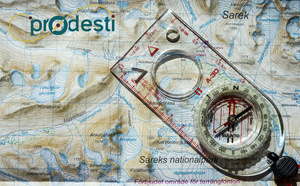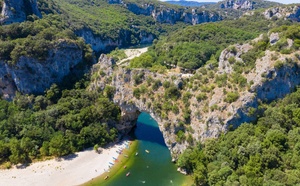
The sharing economy has shaken up tourism practices for good. DR Fotolia
Saying that internet has shaken up our way of traveling is stating the obvious.
But its pervasiveness in our lives has led to a redefinition of the tourism industry.
Without Internet, the sharing economy would not have been able to emerge. And tourism professionals would not have access to this much information to customize their offers.
All of these trends were unraveled in a study conducted by the firm Euromonitor International, presented on Monday, November 2nd during the WTM Trade Fair in London.
According to analysts, Big Data already enables tourism professionals to always be one step ahead of their clients’ expectations.
OTAs attempt to exploit all of the data that they obtain on purchasing preferences and habits to improve their conversion rates.
Today, Google is able to be one step ahead of the expectations of internet users by looking at browsing history and geolocation. Finally, the application Tripadvisor of Apple Watch enables to send notifications on restaurants during meal hours.
But its pervasiveness in our lives has led to a redefinition of the tourism industry.
Without Internet, the sharing economy would not have been able to emerge. And tourism professionals would not have access to this much information to customize their offers.
All of these trends were unraveled in a study conducted by the firm Euromonitor International, presented on Monday, November 2nd during the WTM Trade Fair in London.
According to analysts, Big Data already enables tourism professionals to always be one step ahead of their clients’ expectations.
OTAs attempt to exploit all of the data that they obtain on purchasing preferences and habits to improve their conversion rates.
Today, Google is able to be one step ahead of the expectations of internet users by looking at browsing history and geolocation. Finally, the application Tripadvisor of Apple Watch enables to send notifications on restaurants during meal hours.
The sharing economy arrives in Asia
Autres articles
-
 CosmopolitHome facilite l'échange de nuitées entre particuliers (vidéo)
CosmopolitHome facilite l'échange de nuitées entre particuliers (vidéo)
-
 Opitrip, LE comparateur d'offres de tourisme collaboratif
Opitrip, LE comparateur d'offres de tourisme collaboratif
-
 What can the traditional hotel sector learn from the case of Airbnb?
What can the traditional hotel sector learn from the case of Airbnb?
-
 NightSwapping offers (re)assurance to fans of collaborative tourism
NightSwapping offers (re)assurance to fans of collaborative tourism
-
 Airbnb and Uber are tackling Business tourism
Airbnb and Uber are tackling Business tourism
The emergence of the sharing economy is also changing the identity of travelers.
According to the Euromonitor study, Europe has become a land of “hipster” tourists.
Young people and broke travelers from the crisis are now looking to avoid the rather expensive historical centers that they deem to be completely overrated.
Looking for cheaper alternatives, they invested in new neighborhoods, that are more working class and “authentic.”
They flock to Kreuzberg, a working-class neighborhood of West Berlin, to Dalston in North London, or the very separatist neighborhood of Gracia, in Barcelona.
Lacking hotel infrastructures, the rise of these new places was made possible through to the development of Airbnb, along with alternative guides, like the website Like a Local.
A trend that can also be found in Asia with the development of platforms competing with Airbnb, like Xiaozhu and Mayi, or Homeaway that bought out its counterpart Travelmob.
Uber is also conquering the continent. When is started in Singapore in February 2014, 90% of its clients were expats, whereas now they only account for 40% of the clientele.
According to the Euromonitor study, Europe has become a land of “hipster” tourists.
Young people and broke travelers from the crisis are now looking to avoid the rather expensive historical centers that they deem to be completely overrated.
Looking for cheaper alternatives, they invested in new neighborhoods, that are more working class and “authentic.”
They flock to Kreuzberg, a working-class neighborhood of West Berlin, to Dalston in North London, or the very separatist neighborhood of Gracia, in Barcelona.
Lacking hotel infrastructures, the rise of these new places was made possible through to the development of Airbnb, along with alternative guides, like the website Like a Local.
A trend that can also be found in Asia with the development of platforms competing with Airbnb, like Xiaozhu and Mayi, or Homeaway that bought out its counterpart Travelmob.
Uber is also conquering the continent. When is started in Singapore in February 2014, 90% of its clients were expats, whereas now they only account for 40% of the clientele.
The hotel sector is turning to crowdfunding
The hotel sector is also experiencing a collaborative revolution. To fight the aversion of banks, project directors are now looking to crowdfunding.
For example, the startup Amerlair would like to open a luxury boutique hotel thanks to the support of individual investors. They will be able to vote on choosing the location of the hotel and on the interior decoration. These kinds of initiatives enable to position the consumer within the hotel’s creation and to convert him into a loyal client.
In Africa, the rise of startups benefits corporate tourism along with the necessary services to host this type of clientele.
In Nigeria for example, the platform Hotels.ng created in 2013, lists 7,000 hotels and is expecting to expand in Ghana and West Africa.
The application AwesomeSouthAfrica.com helps to find restaurants and activities in one’s surroundings.
Finally, in India, new technologies are also at the service of tourism.
Thanks to the development of the system Cash on delivery, that allows to pay in cash for an online purchase through a physical store, part of the 500 millions people who do not have a bank account can now access these tourism services. The system is already adopted by Jet Airways and India’s railway company.
For example, the startup Amerlair would like to open a luxury boutique hotel thanks to the support of individual investors. They will be able to vote on choosing the location of the hotel and on the interior decoration. These kinds of initiatives enable to position the consumer within the hotel’s creation and to convert him into a loyal client.
In Africa, the rise of startups benefits corporate tourism along with the necessary services to host this type of clientele.
In Nigeria for example, the platform Hotels.ng created in 2013, lists 7,000 hotels and is expecting to expand in Ghana and West Africa.
The application AwesomeSouthAfrica.com helps to find restaurants and activities in one’s surroundings.
Finally, in India, new technologies are also at the service of tourism.
Thanks to the development of the system Cash on delivery, that allows to pay in cash for an online purchase through a physical store, part of the 500 millions people who do not have a bank account can now access these tourism services. The system is already adopted by Jet Airways and India’s railway company.



























![Une France senior ? Oui, mais laquelle ? [ABO] Une France senior ? Oui, mais laquelle ? [ABO]](https://www.tourmag.com/photo/art/large_16_9/87604212-62124775.jpg?v=1743538797)















